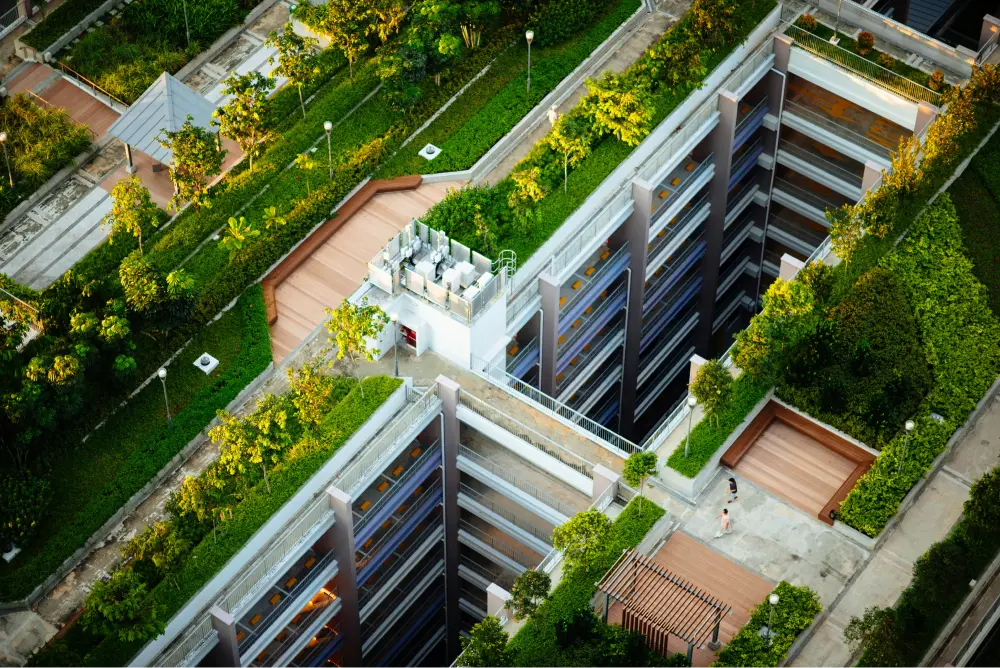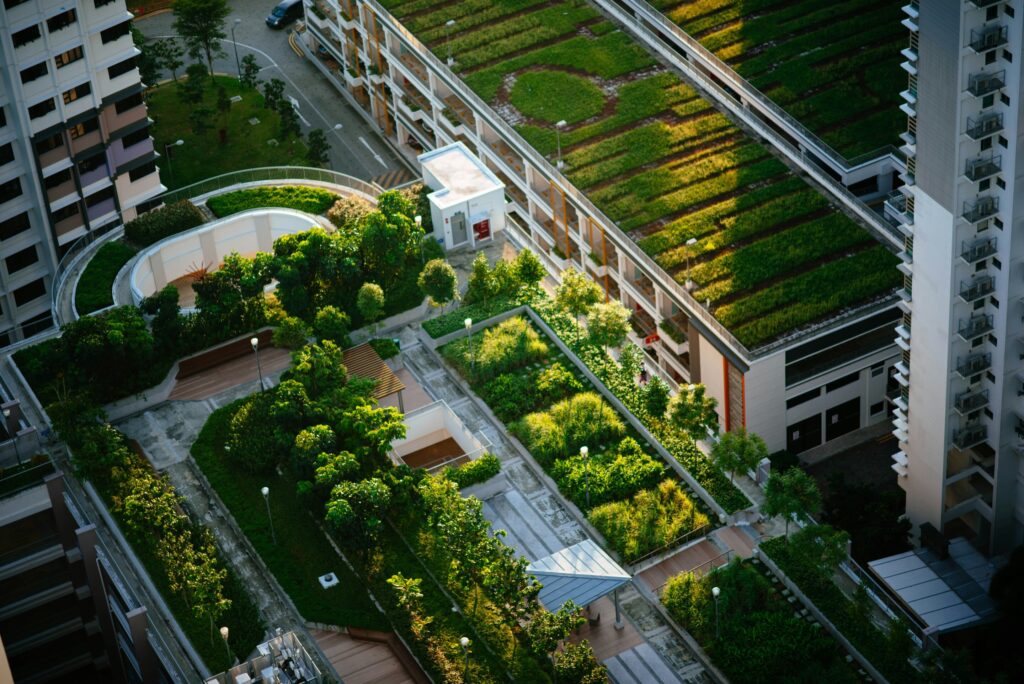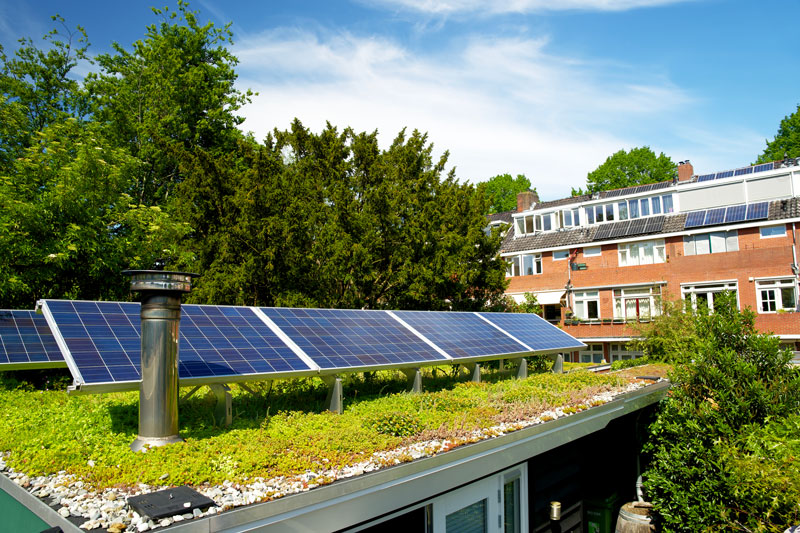Kuwait is turning up the green in its cities—literally. In a new move to fight the rising heat in urban spaces, the government has launched a program that rewards building owners for installing rooftop gardens. This step is part of the country’s bigger goal to deal with climate change and improve the quality of life for city residents.
Through the new rooftop initiative, people who live in cities will receive financial support to create green spaces on their roofs. These gardens are not only beautiful, but they also help cool buildings, clean the air, and make city life healthier and more enjoyable.
Why Kuwait Is Going Green on Rooftops
Kuwait faces extremely hot summers, with temperatures often reaching above 50°C. These rising temperatures are caused not only by global climate change but also by the structure of cities themselves. Urban areas full of concrete, asphalt, and buildings absorb and trap heat. This makes city centers much hotter than nearby rural areas, a phenomenon called the “urban heat island effect.”
By introducing rooftop gardens, Kuwait hopes to reduce this heat build-up. Plants and soil on rooftops absorb less heat and release moisture into the air, naturally cooling the environment. This also reduces the need for air conditioning, which can help lower electricity use and save money.
Government officials say this is not just about comfort—it’s about sustainability. “We are encouraging a greener urban lifestyle that can help our cities survive and thrive in the coming years,” said an official from the Environment Public Authority (EPA).
How the Incentive Program Works

The new initiative will provide grants and subsidies to homeowners, building owners, and developers who install rooftop gardens. The program includes the following benefits:
- Financial Grants: Partial funding for materials and installation of rooftop gardens.
- Design Support: Access to experts who help with planning and selecting the right plants for Kuwait’s climate.
- Maintenance Advice: Ongoing support for keeping rooftop gardens healthy and effective.
Those who wish to apply must follow environmental guidelines and submit a proposal outlining how they plan to use their rooftops for green purposes. The gardens can be small personal spaces or larger community gardens shared by building residents.
Officials hope this program will inspire businesses, schools, and residential buildings alike to take part. The long-term goal is to create a connected network of green rooftops across Kuwait City and other major areas.
More Than Just Plants—A Lifestyle Change
Rooftop gardens bring more than environmental benefits. They also improve mental health, provide fresh produce, and encourage community interaction. In crowded urban settings, green rooftops offer peaceful spaces for people to relax, garden, or even hold social gatherings.
Architects and urban planners in Kuwait have already shown interest in integrating rooftop gardens into new building designs. Schools and universities are also being encouraged to create educational rooftop gardens where students can learn about sustainability and nature.
Additionally, this move supports the country’s food security goals. By growing herbs, vegetables, and fruits in urban spaces, citizens can reduce dependence on imported food.
A Smart Step Toward Climate Goals
Kuwait has joined several Gulf countries in working toward sustainable urban development. The rooftop initiative fits well with its national vision for a greener, smarter future. The country has already invested in solar energy, water conservation, and eco-friendly transportation. Rooftop gardens are the next step in this path.
Experts believe this kind of project can lead to major changes if done well. “It’s a simple but powerful idea,” says a local environmental engineer. “If enough buildings join, we can lower the temperature of entire neighborhoods and make Kuwait’s cities healthier.”

The government also plans to track the results of this initiative closely. A new monitoring system will be launched to study the cooling effects, air quality improvements, and energy savings from rooftop gardens.
Community Response and Future Potential
Many residents are already excited. Social media has been full of photos and videos showing people starting small gardens on their rooftops. Some are planting flowers, while others are growing tomatoes, mint, and even lemons.
A school in Hawalli has already turned its roof into a green classroom. Students take care of plants as part of their science lessons, and the project has received praise from parents and educators.
Real estate developers have also taken note. New buildings with green rooftops are likely to attract more buyers and tenants who value sustainability and wellness.
Looking ahead, Kuwait may consider expanding the program to include vertical gardens on building walls or community gardens in public spaces. These green spaces can support wildlife, lower pollution, and even improve the country’s image as an environmentally responsible nation.
Kuwait Sets an Example for the Region
Kuwait’s green rooftop initiative could become a model for other countries in the region. With similar climate challenges and fast-growing cities, many Gulf nations are looking for practical ways to reduce heat and pollution. This project offers a smart solution that blends modern architecture with natural design.
If the program is successful, Kuwait will not only have cooler cities but also healthier, happier residents. It shows that sometimes, the best way to move forward is to grow upward—with a little soil, some sunshine, and a strong vision for the future.
Also read: Dubai to Launch AI Traffic Violation Prediction System



